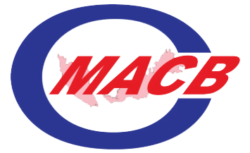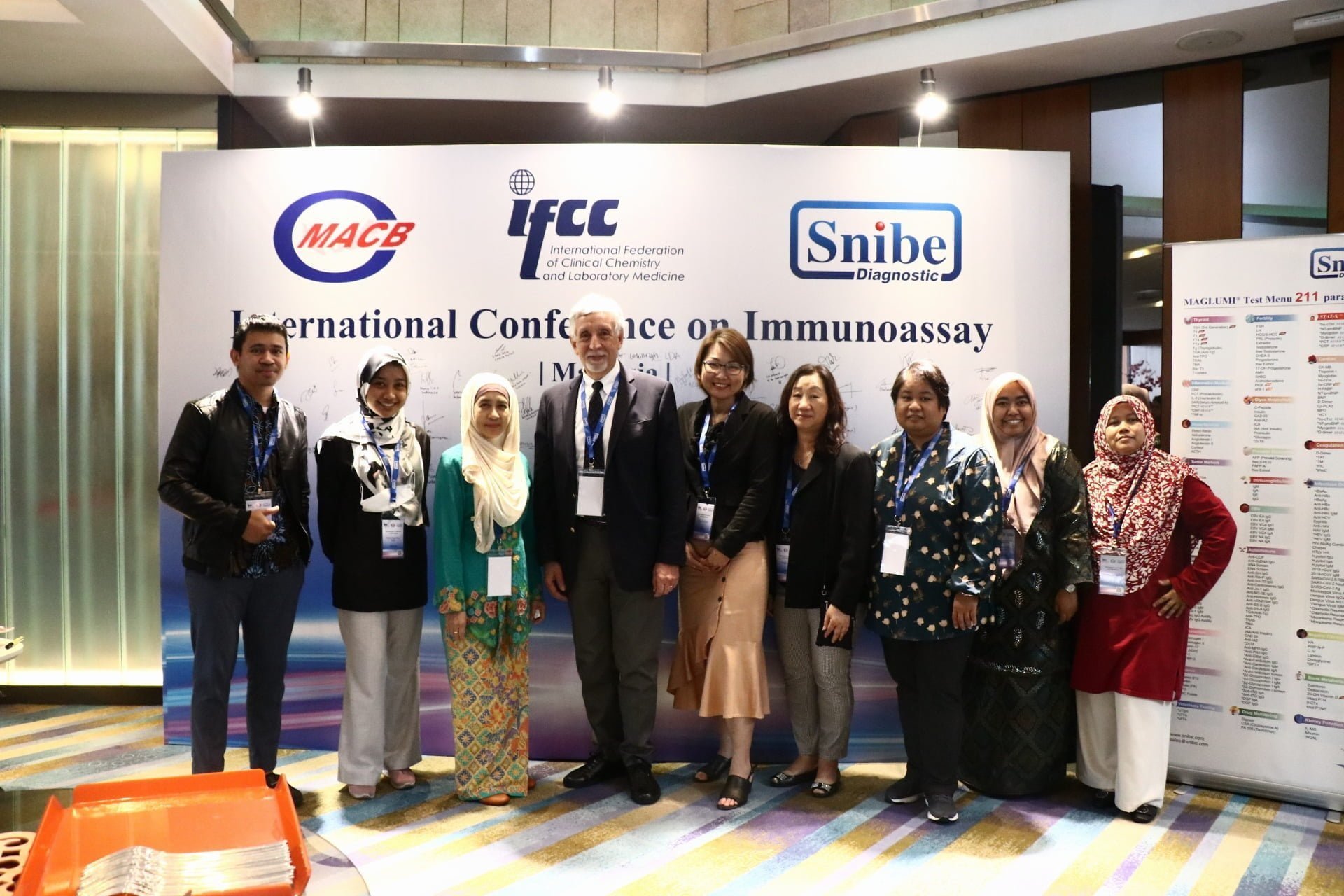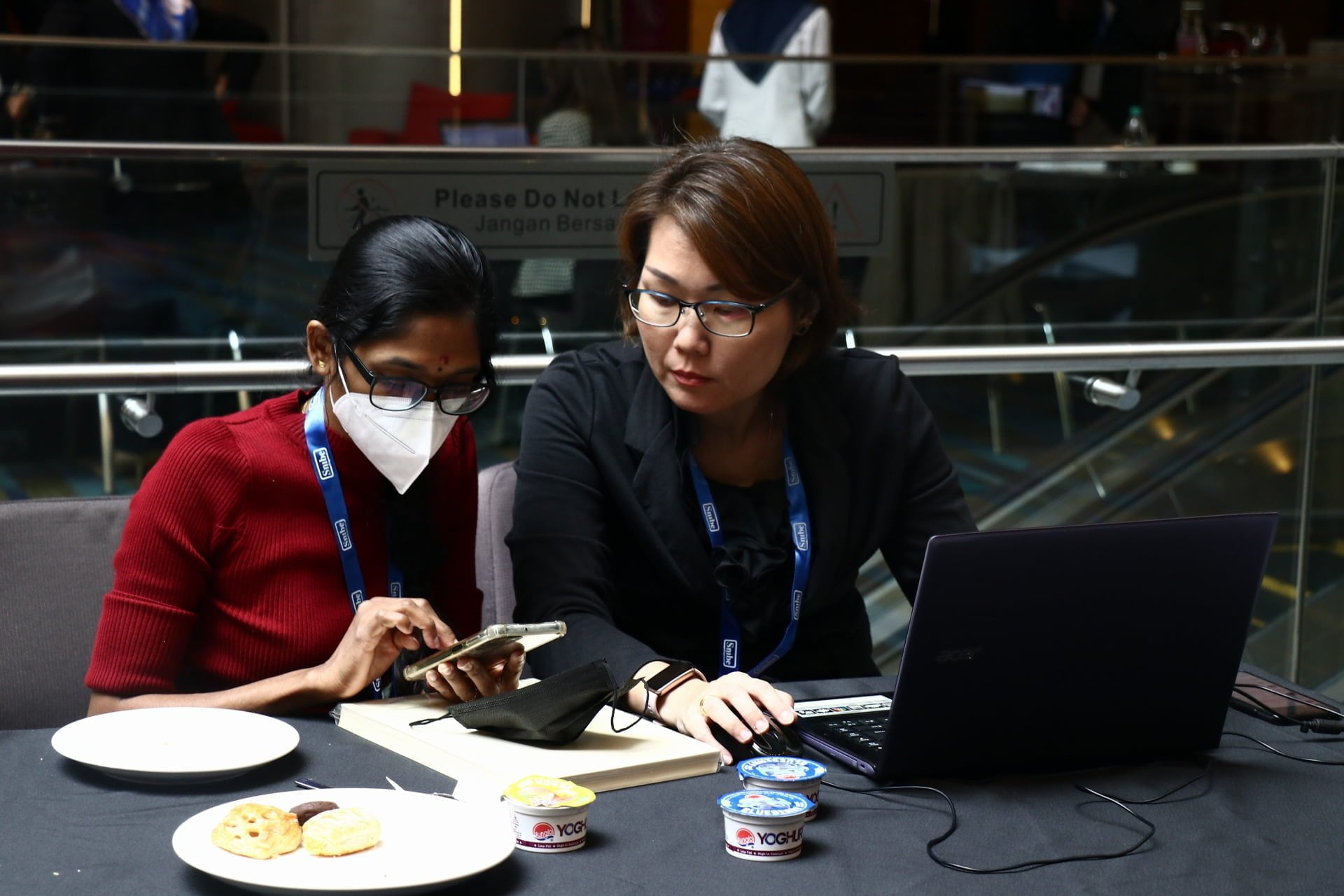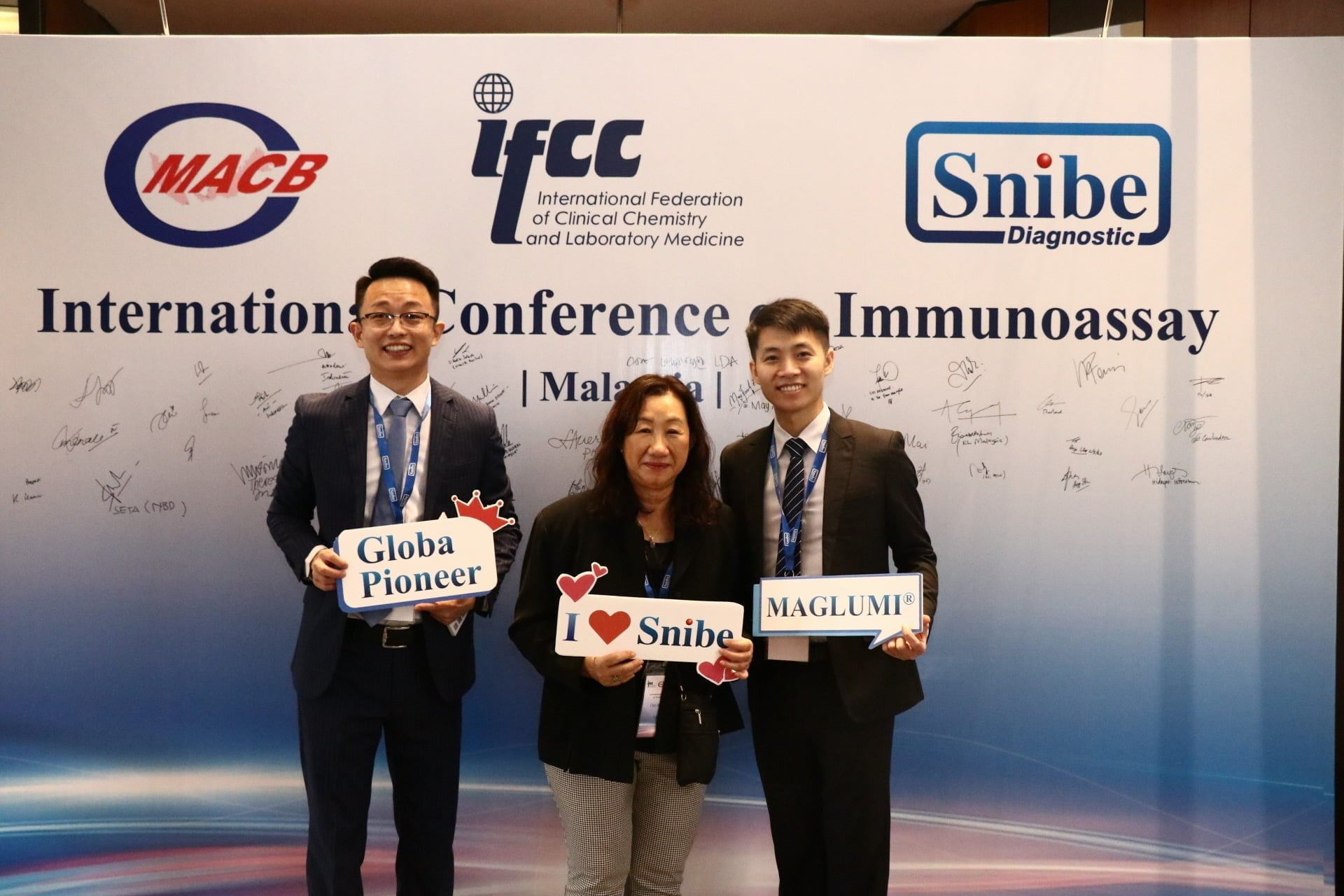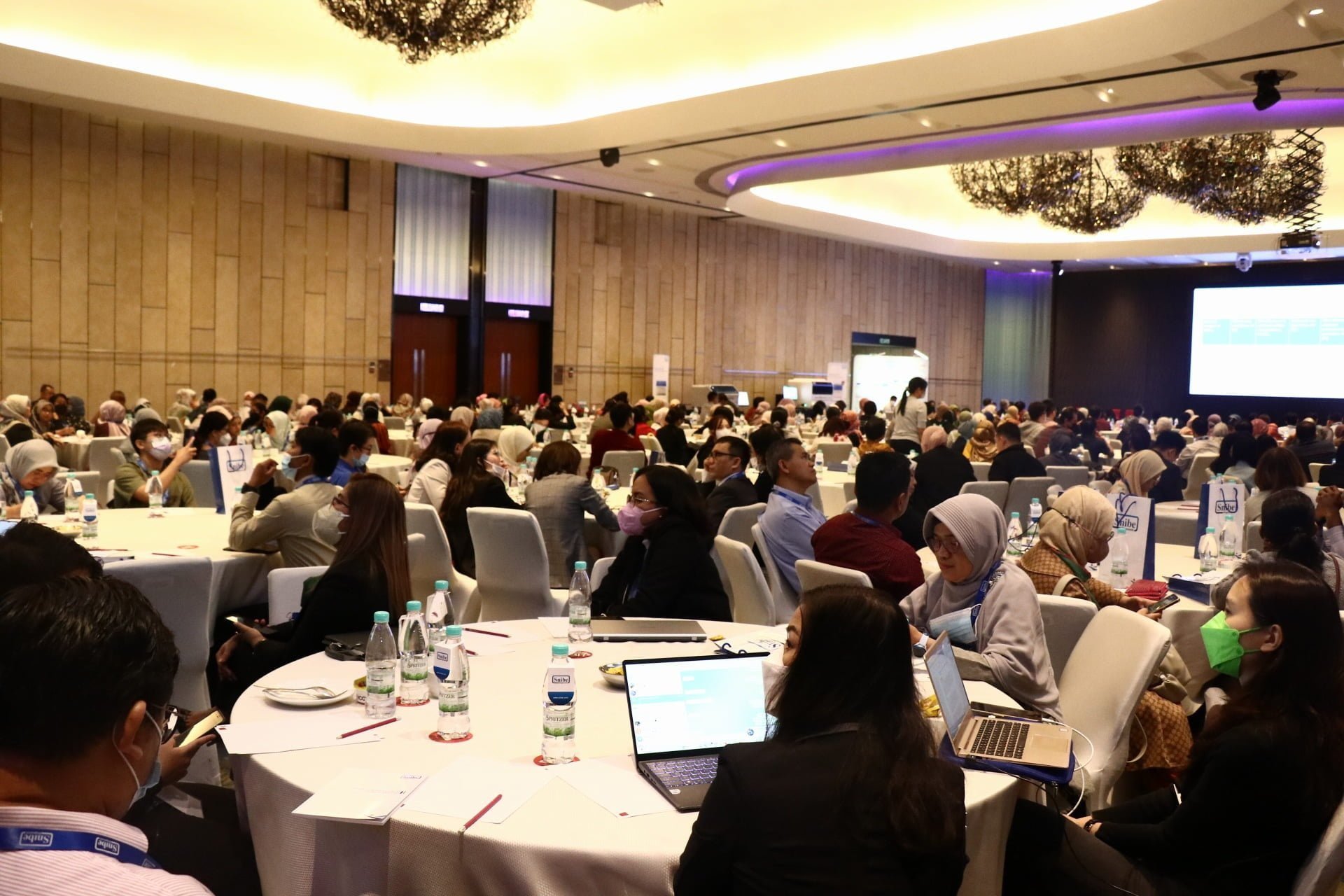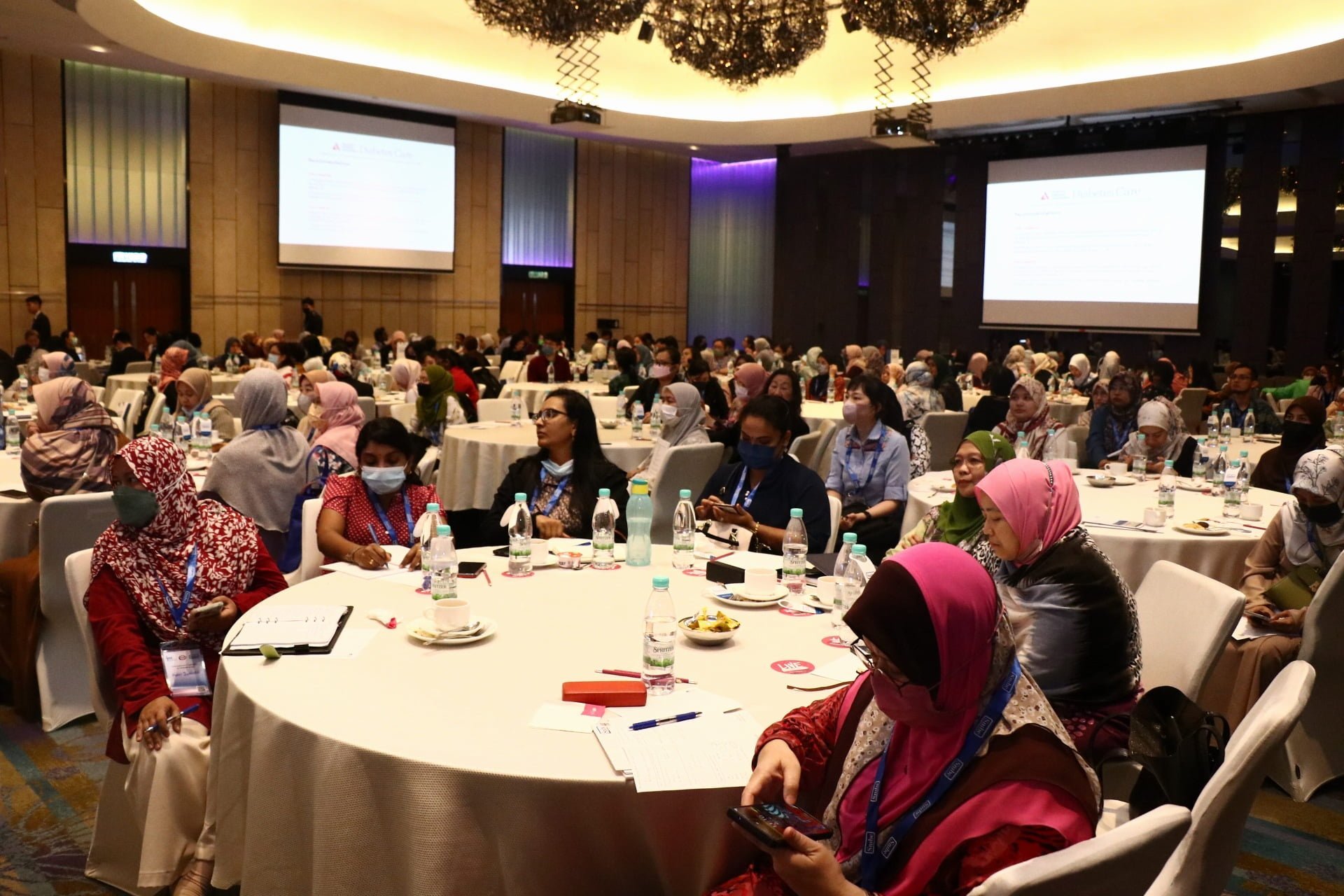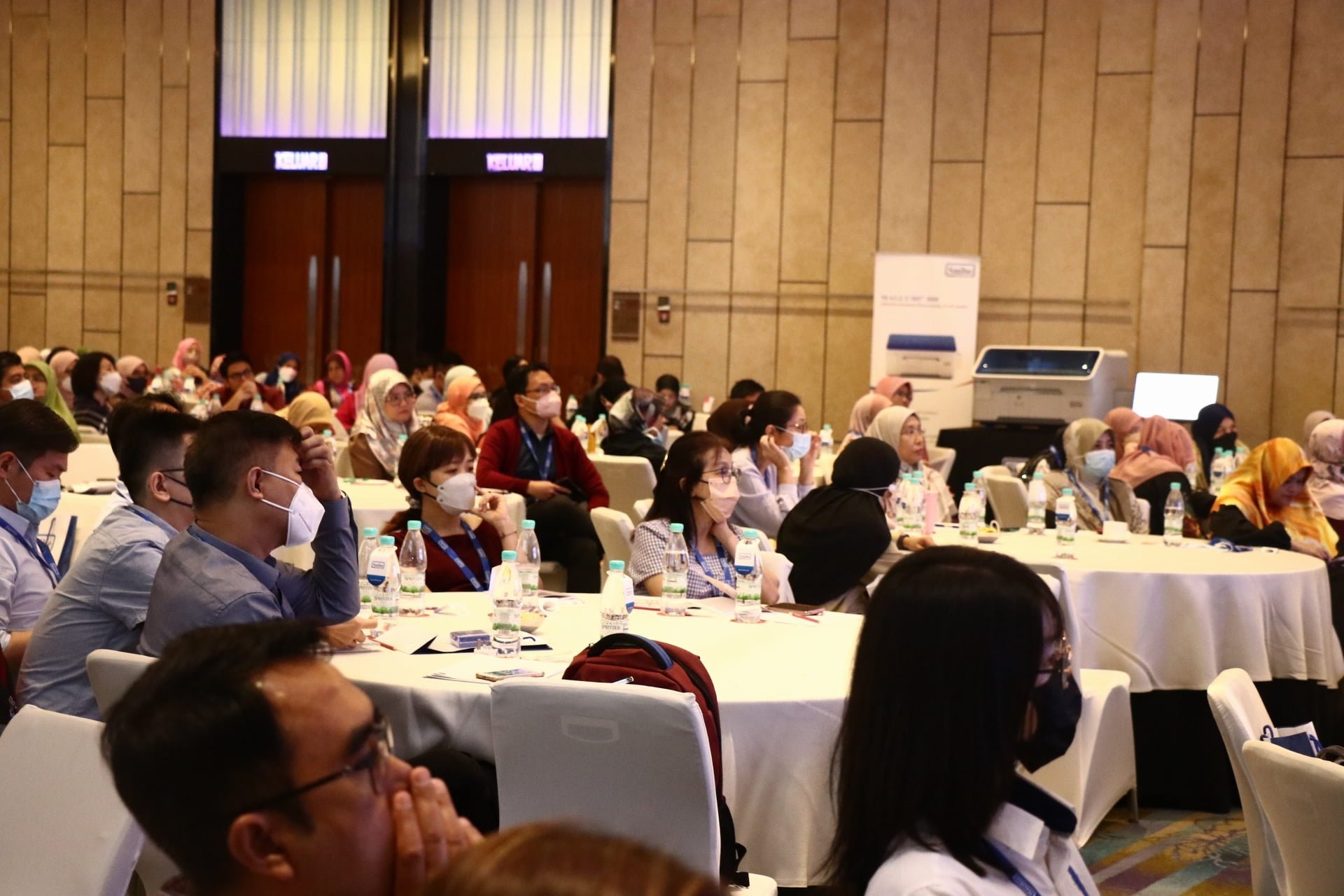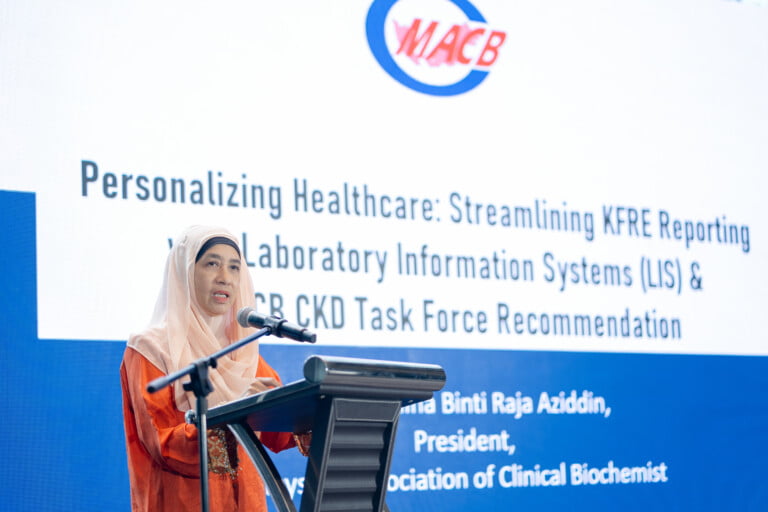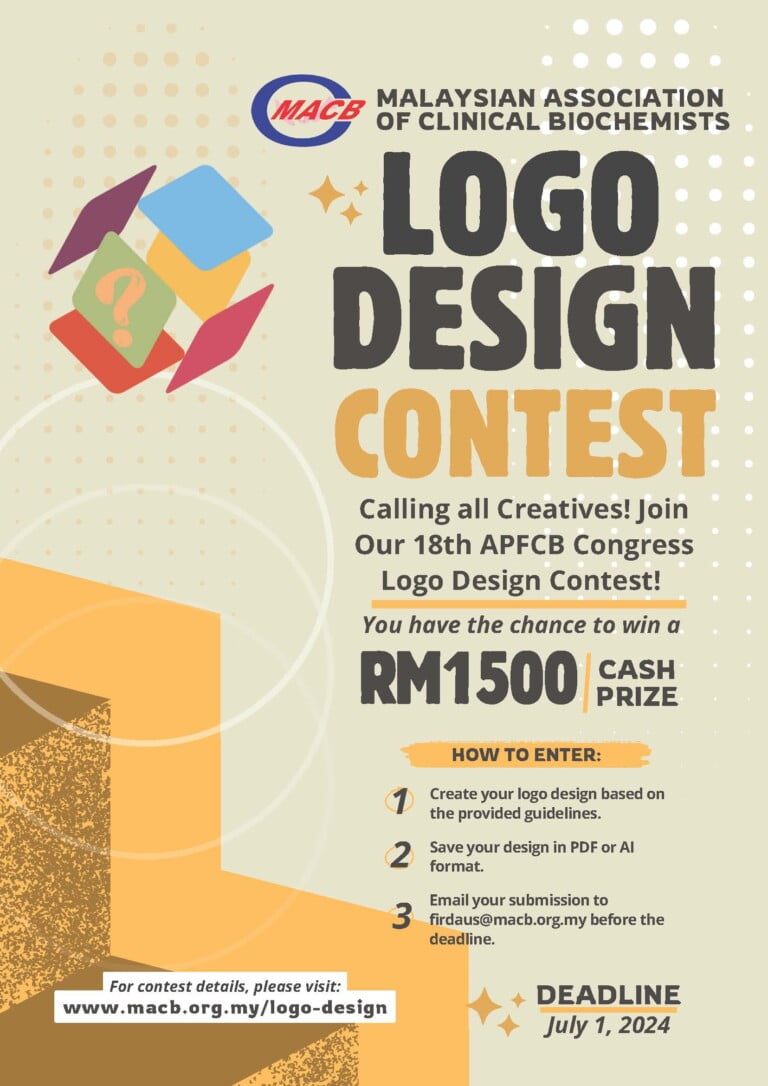The International Conference on Immunoassay was organized by the Malaysian Association of Clinical Biochemists (MACB), the International Federation of Clinical Chemistry and Laboratory Medicine (IFCC), and SNIBE on March 2, 2023, at Aloft Kuala Lumpur Sentral. The conference was attended by more than 300 delegates from local and various Southeast Asian countries, including Indonesia, the Philippines, Thailand, Myanmar, and Vietnam.
The conference covered a wide range of topics related to immunoassay, a powerful analytical technique used to detect and quantify various biomolecules, including proteins, hormones, and drugs. Among the topics discussed were “Free Testosterone: a Laboratory Test with Several Clinical Implications” by renowned international speaker Prof. Maurizio Ferrari, “The Use of ANA/dsDNA in Clinical Practice” by Prof. Aw Tar Choon, “Clinical Application of PCT, hs-CRP and IL-6 in Inflammation Monitoring” by Prof. Anderson Amirthanathan, and “Autoantibodies for Type 1 Diabetes” by Dr. Saraswathy Apparow.

Prof. Maurizio Ferrari, the keynote speaker, discussed the clinical implications of measuring free testosterone levels in men and women, including the diagnosis and management of several endocrine disorders. Prof. Aw Tar Choon talked about the clinical utility of antinuclear antibodies (ANA) and double-stranded DNA (dsDNA) testing in the diagnosis and monitoring of autoimmune diseases such as lupus and rheumatoid arthritis. Prof. Anderson Amirthanathan presented the role of inflammatory biomarkers such as procalcitonin (PCT), high-sensitivity C-reactive protein (hs-CRP), and interleukin-6 (IL-6) in the management of sepsis and other inflammatory conditions. Dr. Saraswathy A/P Apparow discussed the role of autoantibodies in the diagnosis and monitoring of type 1 diabetes, an autoimmune disorder that affects millions of people worldwide.
The conference was a resounding success, with participants expressing satisfaction with the quality of the talks and the organization of the event. The venue, Aloft Kuala Lumpur Sentral, provided an ideal setting for the conference, with spacious halls and modern amenities. The organizing committee also received support from Biomed Global, a leading healthcare company that specializes in the distribution of medical devices and supplies. The support and collaboration between the Malaysian Association of Clinical Biochemists (MACB), the International Federation of Clinical Chemistry and Laboratory Medicine (IFCC), and SNIBE made this conference possible, and the organizers express their gratitude to all who contributed to its success.
The conference provided an outstanding opportunity for researchers, clinicians, and laboratory professionals to share their latest research, exchange ideas, and stay current with the most recent advancements in immunoassay. It is clear that this event has contributed significantly to the field of immunoassay, and it will undoubtedly lead to new research collaborations and scientific breakthroughs in the future.

In conjunction with the conference, MACB signed a Memorandum of Understanding (MOU) with SNIBE a leading global provider of in-vitro diagnostic solutions. This MOU sets the terms and understanding between MACB and Snibe to enhance mutual cooperation. This cooperation has once again demonstrated Snibe’s determination to provide global high-quality diagnostic services and also reflected the recognition of its products and services by the Malaysian healthcare industry. The signing of the MOU marked a significant step in promoting learning and research in clinical biochemistry in Malaysia, and the organizing committee of the conference expressed their gratitude to SNIBE for their support.
The MACB encourage other organizations to support us in organizing future events like this. Conferences like this one provide an excellent platform for participants to learn from each other and advance the field of clinical biochemistry. With the support of the members, community, and other companies, MACB will be able to organize more successful events that will benefit not only the participants but also the patients worldwide.
